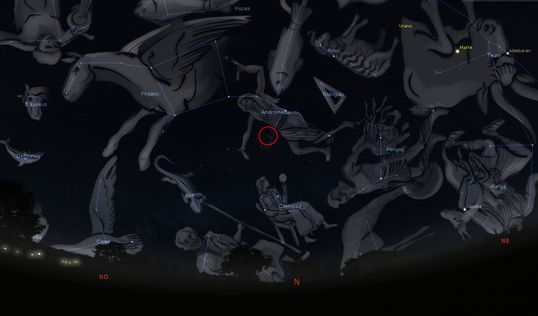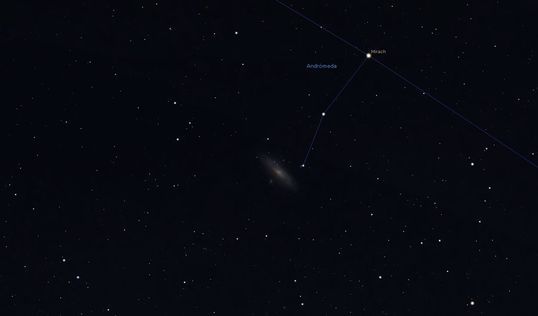Our galaxy is going to crash into Andromeda. Now is the start of the best time of year to see it with your own eyes.
Our galaxy, the Milky Way, is going to crash into Andromeda, which is twice as big as it is. Due to gravity, they are moving toward each other at a speed of 113 kilometers per second. They are expected to crash into each other in 4.5 billion years, but their outer layers have already started to merge.
At the same time, people on Earth can see Andromeda, which is also called Messier 31, with their own eyes.
The spiral galaxy can be seen in the night sky in both hemispheres of our planet from mid-August to November. Andromeda is 2.5 million light-years away, but it only takes up a quarter of a degree in the sky. NASA says that this is the same as half the width of a full moon.
When will we be able to see the Andromeda galaxy?
Because it is so far away, Andromeda has a soft glow. So, to see it with the naked eye, it’s not enough to have a clear sky. There also needs to be little light on the moon’s surface and no bright spots.
Because of this, you can already see the galaxy on these dates, but it’s best to look at it on nights close to the new moon. The last week of August is when this stage will happen ( from August 24 to 31 ). Also, look for a place with little light pollution, like outside of a city or in the country.
Where in the sky is Andromeda?
Around midnight in Peru and other places in the southern hemisphere (Argentina, Chile, etc.), the galaxy rises above the horizon and moves northeast. In the northern hemisphere, it rises hours earlier (Mexico, Spain, etc.).
It is near the Andromeda constellation, which is how it got its name. It is right at the top of the character’s “belt.” The Pegasus constellation, whose stars form a square, can be used to find the galaxy.
Between 2:00 am and 3:00 am, when it is in the north and high in the sky, is the best time to see Andromeda.
With the naked eye, it looks like a small cloud with some details, but with binoculars, you can see the grandeur of this nearby galaxy.
Andromeda has an apparent magnitude of 3.5, which means it is brighter than most visible stars (magnitudes 4 to 6), but not as bright as planets that can be seen with the naked eye. (values between 1 and less than 0).
Because of this, experts in astronomical observation say that anyone who wants to look for Andromeda or anything else in deep space should first try to get used to the darkness of the sky.



















No comments